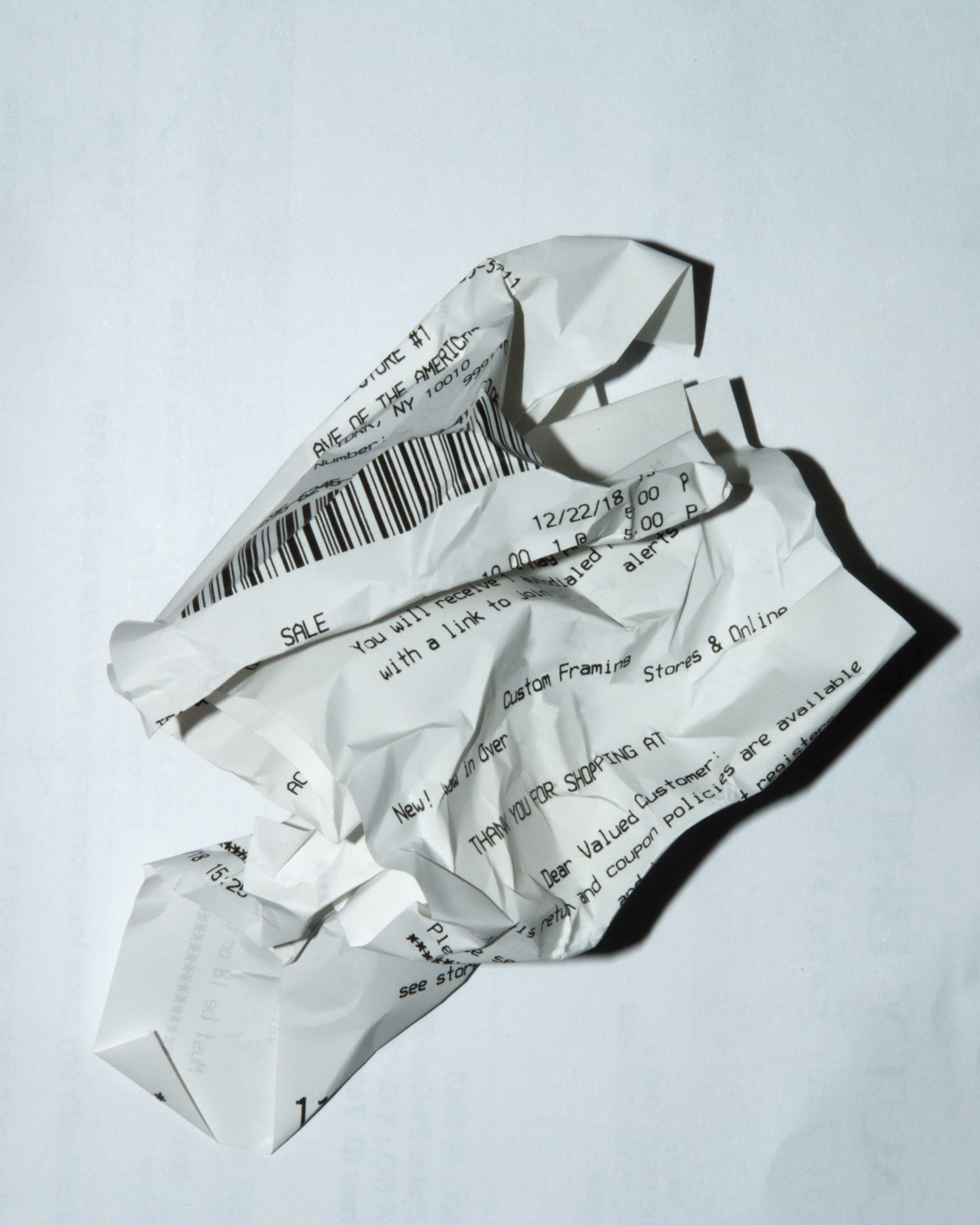Several states are considering a ban on paper receipts.
In an effort to be more environmentally and health conscious, New York City lawmakers are considering the issuance of a ban on paper receipts coated with the chemical BPA and requiring retailers offering emailed receipts instead. The City Council recently announced it will hold hearings on a package of bills targeting paper receipts.
“Nobody needs foot-long receipts,” said New York Council Speaker Corey Johnson, a Democrat. “We will work with businesses and consumers to cut out paper receipt waste and protect the planet. Let’s not print receipts when they aren’t wanted, especially when we have technology to issue environmentally friendly alternatives.”

Most cash register receipts are coated with bisphenol A, known as BPA, according to lawmakers, or chemical BPS. Some health studies have found the chemicals could harm the female reproductive system when individuals come into contact with high levels of either substance. BPA, suspected of interacting with human hormones when contact is made, can also cause breast cancer and brain damage. It has long ago been removed from many products, including those for infants – it is banned federally from use in sippy cups and bottles. However, it is still found widely in a variety of products, including in the lining of cans of soda and food, credit card receipts, and plastic food containers. The U.S. Food and Drug Administration (FDA) banned its use in baby products in 2012 and the European Union (EU) banned it from use in receipts in 2013.
“It’s definitely a concern,” said Katherine Reeves, a University of Massachusetts epidemiologist. She added, “Other research suggests it may be associated with autism, obesity and hormone-linked cancers.”
Sara Scruggs, a spokesperson for the American Chemistry Council, said, however, “There may not be cause for alarm,” adding, a Danish study that found “no immediate health risk related to the use of BPA based cash register receipts.” Either way, if the legislation passes, repeated offenders would incur fines of as much as $1,000.
“We need to get rid of those chemicals and also get rid of paper waste,” Council Speaker Corey Johnson said.
Illinois is considering similar legislation, which, as introduced, “Creates the Electronic Proof of Purchase Act. Provides that on and after January 1, 2022, a proof of purchase for the retail sale of food, alcohol, or other tangible personal property or for the provision of services provided to a consumer by a business shall be provided only in electronic form, unless the consumer requests that the proof of purchase be provided in paper form. Provides that the first and second violations of the Act shall result in a notice of violation, and any subsequent violation shall be punishable by a fine of $25 for each day the business is in violation, but not to exceed $300 annually. Provides that small businesses are exempt from the Act’s provisions. Provides legislative findings. Amends the State Mandates Act to require implementation without reimbursement.”
Similarly, California bill AB 161, commonly known as “Skip the Slip,” if passed, would require all retailers in the state to purchase new payment software by January 1, 2022 to generate e-receipts via email or text message. Paper receipts would only be available upon request.
Sources:
In New York City, Paper Receipts Set to Go the Way of Foie Gras
NYC Is Now Considering A Ban On Paper Receipts


Join the conversation!